Hapsburg
About Andrew Cusack
 Writer, web designer, etc.; born in New York; educated in Argentina, Scotland, and South Africa; now based in London.
Writer, web designer, etc.; born in New York; educated in Argentina, Scotland, and South Africa; now based in London. read more
News
Blogs
Reviews & Periodicals
Arts & Design
World
France
Mitteleuropa
Knickerbockers
Argentina
The Levant
Africa
Cape of Good Hope
Netherlands
Scandinavia
Québec
India
Muscovy
Germany
Academica
A Miracle from Blessed Charles
Vatican to Review Case of Inexplicable Healing of Florida Woman
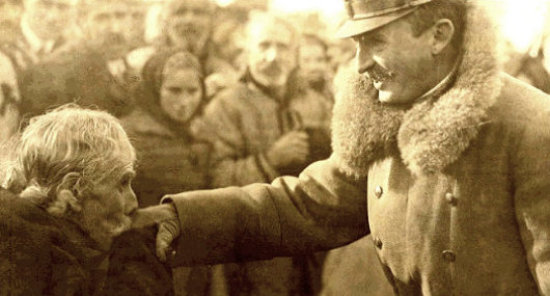
The seemingly inexplicable healing of a Baptist woman from Florida may provide the miracle necessary for the canonization of Emperor Charles of Austria. The woman, in her mid-50s, suffered from breast cancer and was bedridden after the cancer had spread to her liver and bones. Despite treatment and hospitalization, doctors diagnosed her case as terminal. But after intercessory prayers to the Emperor Charles, the woman (who wishes to maintain her privacy and remain unnamed) was completely healed.
The story begins when Joseph and Paula Melançon, a married couple from Baton Rouge, Louisiana and friends of the healed woman, travelled to Austria, where they met Archduke Karl Peter, son of Archduke Rudolf, and grandson of the holy Emperor Charles. The Archduke invited the couple to his grandfather’s beatification in Rome in 2004. Mrs. Melançon gave the novena to Blessed Charles to her sister-in-law, Vanessa Lynn O’Neill of Atlanta.
“I knew that when I got that novena — I knew that my mother’s best friend was sick — I just knew at that moment that it was something I was going to do,” Mrs. O’Neill told the Florida Catholic in an interview. “And that is how I got started, I just prayed the novena.”
The woman’s recovery was investigated by an official church tribunal consisting of Father Fernando Gil (judicial vicar of the Diocese of Orlando), Father Gregory Parkes (chancellor of canonical affairs of the Diocese), Father Larry Lossing, diocesan notary Delma Santiago, as well as an unnamed medical doctor. The tribunal examined the evidence at hand and invited the participation of medical experts, who could find no earthly explanation for the woman’s recovery.
“Other alleged miracles attributed to the intercession of Blessed Karl I are currently being investigated in different places in the world,” Fr. Gil said.
The sixteen-month investigation has now concluded, and the conclusions have been signed by the participants, sealed, and placed in special boxes which are then themselves tied, sealed with wax, and sent to the Congregation for the Causes of the Saints in Rome via diplomatic pouch. The Congregation will examine the case further and then present its findings to Pope Benedict XVI, who will decided if a miracle has taken place. If the Pope is convinced by the evidence, then the Emperor’s canonization can proceed.
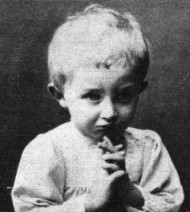 The future emperor, 1889 |
Blessed Charles’s reign as Emperor of Austria and Apostolic King of Hungary began in November 1916 during the First World War. The Emperor realized the heavy toll the Christian countries were suffering and almost immediately began to make peace manouevers. The insane obstinacy of both his German allies and the enemy alliance of France, Great Britain, and the United States, however, meant that Charles’s multiple attempts to negotiate a mutually-acceptable end to the war were not even considered.
After the war, President Woodrow Wilson insisted on dismantling the Austro-Hungarian Empire and the Emperor was forced into exile, first in Switzerland and finally, after two attempts to regain his Hungarian throne, on the Portuguese island of Madeira. Charles had always been particularly devout, and his devotion to God only increased when he caught a severe case of pneumonia on Madeira. He died from the illness in April 1922.
The English writer Herbert Vivian wrote that Charles was “a great leader, a prince of peace, who wanted to save the world from a year of war; a statesman with ideas to save his people from the complicated problems of his empire; a king who loved his people, a fearless man, a noble soul, distinguished, a saint from whose grave blessings come.”
Even Anatole France, the radical French intellectual and novelist, wrote “Emperor Karl is the only decent man to come out of the war in a leadership position, yet he was a saint and no one listened to him. He sincerely wanted peace, and therefore was despised by the whole world. It was a wonderful chance that was lost.”
Recent history has come to fulfil the expectations of Pope St. Pius X, who received Charles when the Austrian was a young archduke and not in direct line to succeed to the throne, saying “I bless Archduke Charles, who will be the future Emperor of Austria and will help lead his countries and peoples to great honor and many blessings–but this will not become obvious until after his death.”
Mourning in Vienna
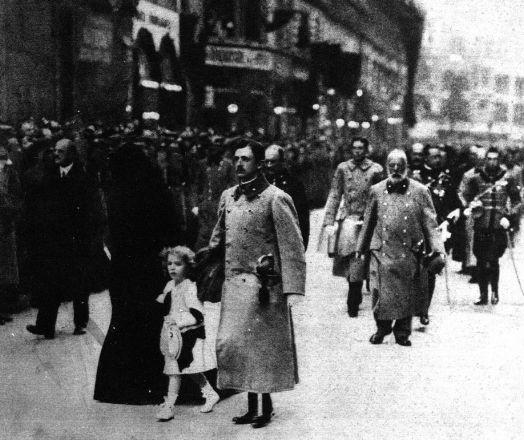
The Blessed Emperor Charles at the funeral of the late Emperor Franz Joseph, the saint’s great uncle, in November 1916. Between the Blessed Charles and his Empress, Zita of Bourbon-Parma, is Crown Prince Otto. Otto lives today, and is the head of the Hapsburg family.
Grant us the grace, with his intercession, to follow his example and serve the true cause of peace, which we find in the faithful fulfillment of Your holy will. We ask this through Jesus Christ our Lord, who lives and reigns with You and the Holy Spirit, one God, forever and ever.
Amen.
Category: Monarchy | Previously: Our Holy Emperor
Archduke Carl Ludwig, 1918-2007
Son of Blessed Charles, U.S. Army Veteran, Fought at Normandy
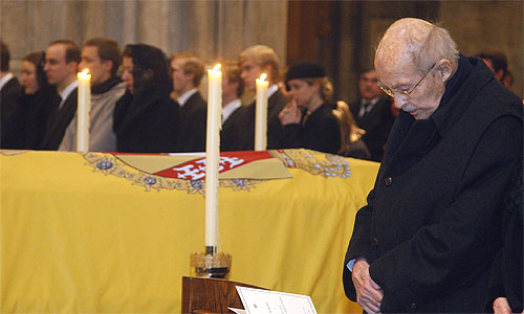
A READER WAS kind enough to bring to my attention the recent death of His Imperial & Royal Highness, Archduke Carl Ludwig Maria Franz Joseph Michael Gabriel Antonius Robert Stephan Pius Gregor Ignatius Markus d’Aviano of Austria, one of the sons of Blessed Charles, the last (up to this point) Emperor of Austria, Apostolic King of Hungary, King of Bohemia, etc. Carl Ludwig’s birth in 1918 was hailed with a 101-gun salute from the imperial field artillery, but the Habsburgs were soon overthrown by a republican element in Vienna and forced into exile. The Archduke studied at the University of Louvain until the outbreak of the Second World War, when the Habsburgs fled to the safety of Quebec.
There, the family were so poor they sometimes had to survive off a soup the Empress Zita cheerfully prepared from dandelions picked in the park. Carl Ludwig, however, was able to complete his studies at the Université Laval, the oldest university in Canada, before being allowed to join the United States Army in 1943. On June 6, 1944, he took part in the D-Day landings in Normandy, and later became aide-de-camp to the Comte de Hauteclocque, a general in the Free French Forces (later known as Maréchal Leclerc), and served with the Algerian spahis. He was discharged from the U.S. Army with the rank of Major in 1947, and in 1950 married Princess Yolande de Ligne.
The Café Society of Ferenc Molnár
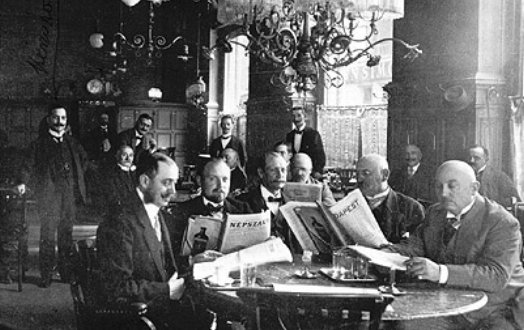
FROM 1887, the Café Central (or Centrál Kávéház, in Magyar) has been a meeting place for artists, intellectuals, professionals, and others located on Budapest’s Károlyi Mihály street. One of its most famous patrons was the novelist and dramatist Ferenc Molnár (born Ferenc Neumann and often anglicized as Franz Molnar), whose 1906 book The Paul Street Boys is perhaps the most widely-read Hungarian novel. His 1909 play “Liliom” was later adapted by Rodgers and Hammerstein into the musical “Carousel”. Both his plays “The Guardsman” and “The Swan” were later made into films (the latter being Grace Kelly’s final appearance on the silver screen), while “The Play at the Castle” was adapted by P.G. Wodehouse into “The Play’s the Thing” and by Tom Stoppard into “Rough Crossing”. (more…)
Our Holy Emperor
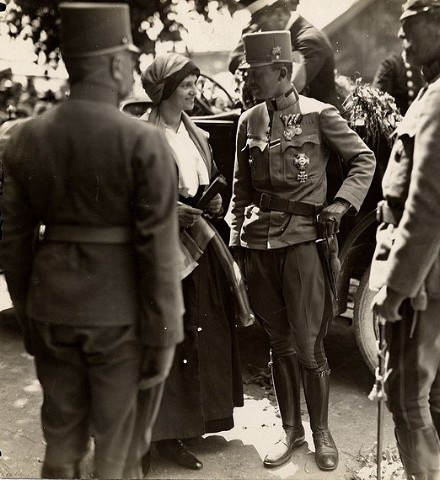
OCTOBER 21 IS the feast of Blessed Charles of Austria, the saintly emperor of that sacred realm whose life stands as an example of the price of sanctity. Charles worked tirelessly for peace both between the peoples of his own numerous realms and between all the nations, seeking to bring to an end the ceaseless and suicidal slaughter of the Great War, in the midst of which he had ascended to the throne of his fathers. A defender of social order, Charles reminds us of our many responsibilities to each other, even though the spirit of our current age would have us clamor only for our supposed rights. In the face of repeated betrayal and intense pressure, he refused to abdicate and so abandon his peoples to their fates, which were terrible indeed. That terrible cross he bore, the crown, was in fact a penitential grace, the sufferings he bore for the benefit of his – and indeed all – people. His reward was not in this world.
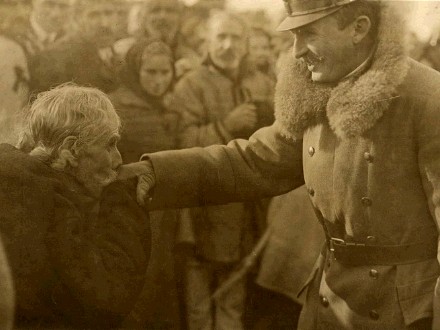
The Two Germanies
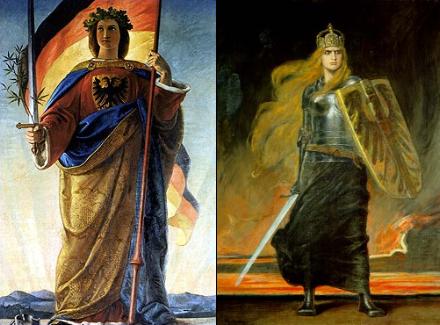
A recent post by Aelianus entitled The Two Germanies brought to mind a little-known idea which surfaced towards the end of World War II. I read in the biography of Empress Zita that a plan was hatched to divide what we now know as Germany, combining Bavaria and Austria to create a Catholic state under the restored Hapsburgs and leaving northern Germany to be a Protestant kingdom with, odd as it might perhaps seem, Lord Louis Mountbatten. Of course it’s not really that odd when one considers that the real name of the Mountbatten family is Battenberg, changed to disguise their Teutonicity during the Great War when the fervor of hatred against our cousin the Hun ran willy-nilly. While Mountbatten was born in Windosr Castle and served as First Sea Lord as well as the final Viceroy of India, he was really entirely German in terms of ancestry. His parents were Prince Louis of Battenberg and Princess Victoria of Hesse and the Rhine, while Louis IV, Grand Duke of Hesse and the Rhine was his grandfather. By right, he was His Serene Highness Prince Louis of Battenberg, but cherishing their adopted country, the family were intimidated into dropping all German styles and titles in 1917.
Lord Mountbatten apparently took the proposal seriously enough that he began to brush up on his German, and informed Empress Zita, living in exile in the Dominion of Canada during the Second World War, of its prospects for both their families. Of course, with Yalta, nothing was ever to come of it and the closest Lord Mountbatten ever came to power, aside from his reign as Viceroy of India, was in 1967 when he was alledgedly asked to lead a coup overthrowing the Labour government. Mountbatten was highly reluctant, and nothing came of the plot. In 1979, while summering at his usual holiday home in the Irish Republic, Mountbatten was killed by an IRA bomb, along with the Dowager Lady Brabourne (aged 82), the Hon. Nicholas Knatchbull (aged 14), and Paul Maxwell (aged 15), a local boy working on the Mountbatten’s boat. He was a Knight of the Garter, a Knight Grand Cross of Bath, Order of Merit, Knight Grand Cross of the Star of India, Knight Grand Cross of the Indian Empire, Knight Grand Cross of the Royal Victorian Order, and the Distinguished Service Order.
The Restitution of Romanian Castles
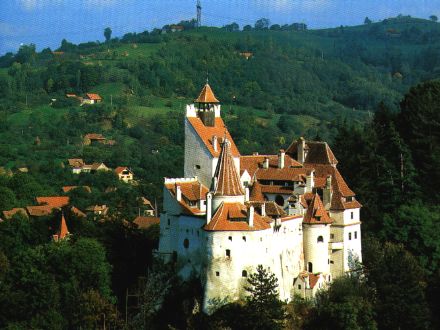
The castle of Bran (above), and the castles of Peles (below), and Pelisor (bottom) are to be restituted by the Romanian government to the Habsburgs and the Hohenzollern-Sigmaringens respectively, and then purchased back by the government for over $60 million, according to Adrian Iorgulescu, the Romanian Minister of Culture. The castles were illegitimately seized by the Communist authorities after they took power in 1947, and after buying them back the government will keep the castles as museums.
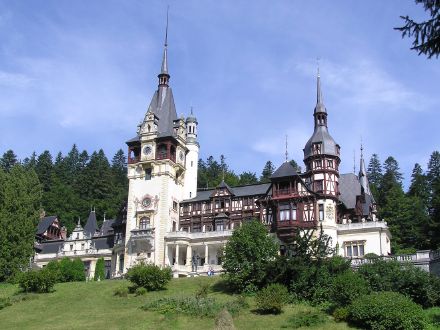
The Habsurgs are the Imperial Family of Austria as well as being the Royal Family of Hungary, Bohemia, Dalmatia, Croatia, Slavonia, Galicia, Lodomeria, Illyria, and Jerusalem, and the Ducal Family of Tuscany, Krakow, Lorraine, Salzburg, Styria, Carinthia, Carniola, the Bukovina, Transylvania, Upper Silesia, Lower Silesia, Modena, Parma, Piacenza, Guastalla, Auschwitz, Zator, Teschen, Friuli, Ragusa, and Zara. The Hohenzollern-Sigmaringen family, on the other hand, are a cadet branch of the senior Swabian branch of the Hohenzollerns, and are the Royal Family of Romania, which has been a republic since the Communist takeover in 1947 and has since, sadly, failed to restore its monarchy. Unlike the more reknowned Hohenzollerns of Brandenburg, the Romanian Royal Family are not Protestant.
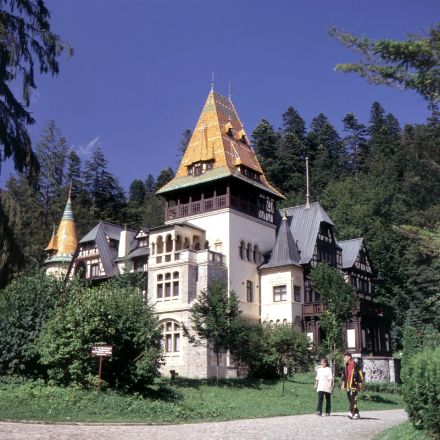
UPDATE: A reader corrects: “The Hohenzollern-Sigmaringens are not the cadet branch, but in fact the surviving senior branch, which position they inherited upon the extinction in the male line of the true senior line, the Hohenzollern-Hechingens, in 1869. Historically they are of minor importance in comparison to their apostate cousins, but still a storied family. Schloss Sigmaringen, by the way, is a magnificent seat, romantically restored in the 19th century. They own it still, but do not tend to live within its forbidding walls. I was shown round it once in dead of winter: an unforgettable experience.”
The Remarkable Hapsburgs
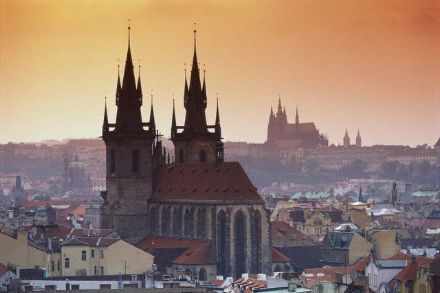
Last night, Fr. Emerson popped up from Edinburgh and gave a talk on the Hapsburg dynasty. It was tremendously interesting. I learned so much I hadn’t known before and it opened up a terrific number of avenues of information down which I have only begun to stroll.
I had no idea how remarkable a man Franz Ferdinand was. All they teach you in America is “This is the guy who got shot” instead of “This man would have been the savior of all that is good and holy in Europe.”
I have seen and read a lot of what Europe is today; Fr. Emerson gave us a glimpse of what Europe was yesterday, before the utter destruction of the social order of the continent by that moment in Sarajevo and everything that came after it. Knowing what Europe was, how depressing to see it now!
It also filled me with some optimism, oddly enough. I used to be partly in the school of thought that’s convinced that Europe is lost. If this is how Europe was, surely it could be again? Perhaps, perhaps not. (more…)
Next Wednesday
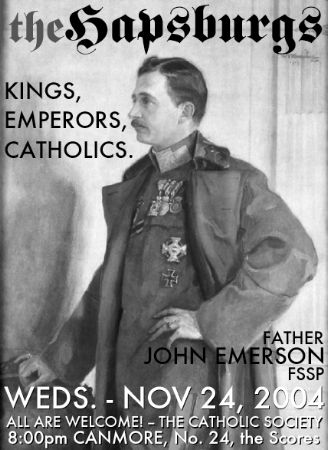
Fr. Emerson will be returning to to Canmore next week to give a talk on the Hapsburgs.
Charles I, Emperor, King, Saint!
Almighty God, Lord of Lords and King of Kings, in Your infinite fatherly love you are keeping watch over the fate of men and nations. You called Your servant, Emperor and King Charles of the House of Austria, to serve as a father to his peoples in difficult times and to promote peace with all his strength. By sacrificing his life, he sealed his willingness to fulfill Your holy will.
Grant us the grace, with his intercession, to follow his example and serve the true cause of peace, which we find in the faithful fulfillment of Your holy will. We ask this through him, Jesus Christ our Lord, who lives and reigns with You and the Holy Spirit, one God, forever and ever. Amen.
Search
Instagram: @andcusack
Click here for my Instagram photos.Most Recent Posts
- Patrick in Parliament March 18, 2024
- Articles of Note: 13 March 2024 March 13, 2024
- Cambridge March 9, 2024
- Taken on Trust March 4, 2024
- Immanuel on the Green March 2, 2024
Most Recent Comments
Book Wishlist
Monthly Archives
Categories


